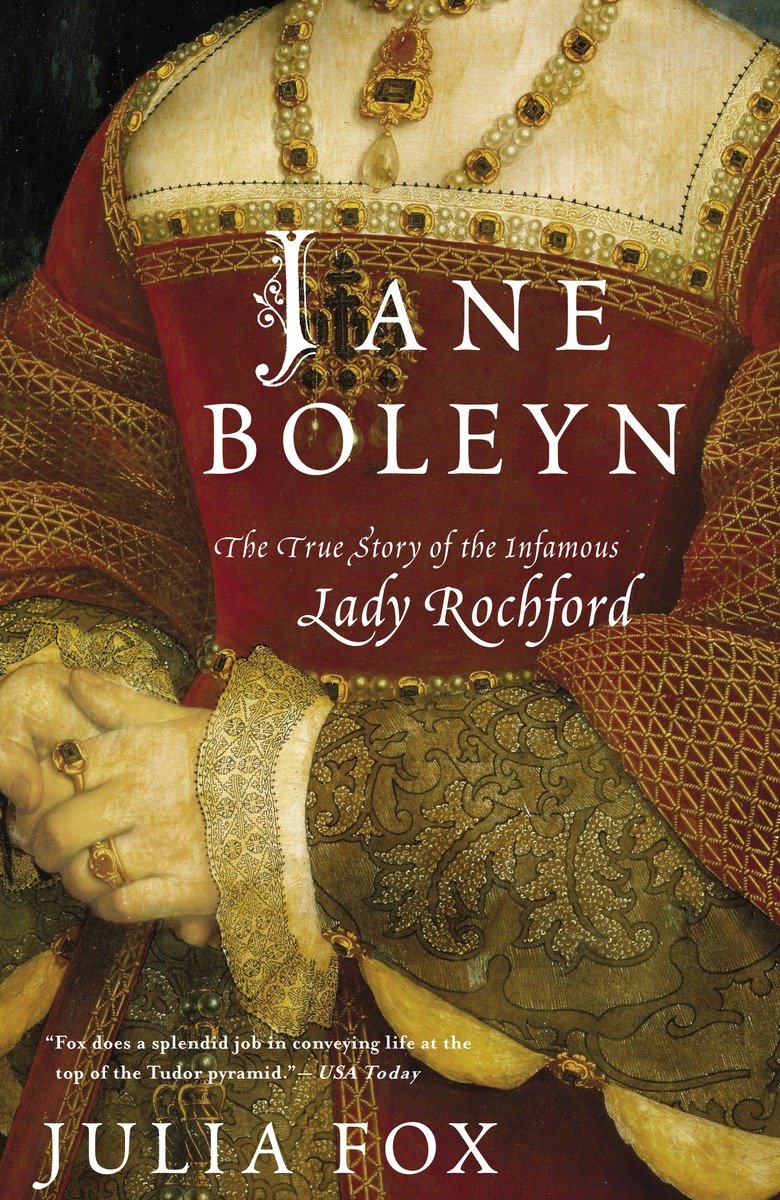Jane Boleyn: The True Story of the Infamous Lady Rochford
15.00 JOD
Please allow 2 – 5 weeks for delivery of this item
Description
A fascinating debut biography of Jane Boleyn, the lady-in-waiting who witnessed and survived Henry VIII’s perilous reign, until she too became a victim.In a life of extraordinary drama, Jane Boleyn was catapulted from the obscurity of the English countryside to the forefront of Henry VIII’s spectacular court, as lady-in-waiting to not just one, but five of Henry’s wives. Always at the centre of court life and intrigue, Jane attended the parties, the masque balls, and the jousts, and participated in the royal births, the weddings, the funerals, and the personal drama that swirled around the king, his wives, and their courtiers. As Henry’s wives rose and then fell, taking so many down with them, Jane stayed on. Her story gives readers an amazing, ongoing view of the personal toll that Henry’s long and ruthlessly violent reign took on the people closest to him, and positions her as a survivor — that is, until she herself became the subject of the king’s rage.History has not always been kind to the “Infamous Lady Rochford,” but in this fascinating biography, Julia Fox goes back to the original documents to rehabilitate Jane as a modern woman forced by brutal circumstances to fend for herself in a privileged but vicious world.
Additional information
| Weight | 0.32 kg |
|---|---|
| Dimensions | 2.29 × 12.96 × 20.32 cm |
| PubliCanadation City/Country | Canada |
| by | |
| Format | Paperback |
| Language | |
| Pages | 416 |
| Publisher | |
| Year Published | 2009-3-24 |
| Imprint | |
| ISBN 10 | 0771047770 |
| About The Author | Julia Fox has a degree in history from the University of London, where she has taught for a number of years, specializing in the Tudors and in the nineteenth century. She is married to the historian John Guy and lives in the U.K. Jane Boleyn is her first book. |
| Excerpt From Book | From the moment she walked into Henry’s court, Jane entered another world. It was a world of complete opulence, a world in which everything that could make life more comfortable and more pleasurable was abundantly provided. The king demanded only the best. His palaces were richly furnished; his plate was silver, gilt or even gold. At night, the twinkling flames from hundreds of candles, firmly secured into the branches of gilt candelabra, glowed against the wooden paneling or brought alive the deep colors of the priceless tapestries which adorned so many walls. The evening suppers comprised course after course. Venison, veal, lamb, peacock, quail, heron, pigeon, turbot, salmon, bream — anything could appear, perhaps flavored with exotic spices like pepper, mace, nutmeg or saffron. By day, there could be hunting, jousting, tournaments; after supper, the haunting melodies of Henry’s musicians could fill the air or there could be dancing or even a masque or pageant to delight the eye. Amidst all of this, moved the rich, the famous, the glamorous, resplendent in bright, stylish garments glinting with precious stones. She did not see the king or queen every day, they would often retire to their private or privy apartments to be served only by the select few allowed admittance, and there were plenty of hours to be whiled away in quiet sewing, but for Jane, fresh from the calm tranquility of rural Essex, the sights and sounds of those first days were almost unbelievable.She was barely given time to take it all in, perhaps even less than a year, before she was on the move. This was not unusual. The court was not fixed in one place. Its personnel followed Henry from palace to palace and he moved frequently so that each building could be thoroughly cleaned to reduce the threat of disease. In fact, he had such a dread of infection that he refused to be in any city where there was a hint of contagion. This move, though, was entirely different: it happened in June,1520, and was across the Channel to the English port of Calais. Cardinal Thomas Wolsey, Henry’s chief minister, had arranged for his master to meet the French king, Francis I, for a series of discussions which took place in near to the town of Guisnes, about five miles south from Calais. To please both monarchs, these talks were conducted in style and splendor, such style and splendor that the whole event came to be known as the Field of Cloth of Gold. And Jane traveled with her king.She was, of course, not alone. Since they were bitter rivals, neither Henry nor Francis wanted to be upstaged by the other. Thus, they were accompanied by their queens, by the most important people of their kingdoms and by an army of servants and attendants. The names of many of those who embarked at Dover with the king are known. They range from the great dukes of Buckingham and Suffolk, to knights of the shires, to gentlemen such as Thomas More, down to hirelings like Thomas Wilson, a farrier. Then, amongst the list of those gentlewomen designated to attend upon Henry’s wife, Katherine of Aragon, we find the name of Mistress Parker, the form of address commonly used for Jane as the daughter of Sir Henry Parker, Lord Morley. In fact, almost six thousand men and women were assembled from each side. The sheer logistics of transporting them, let alone housing and feeding them, was a nightmare. Luckily for Henry, Wolsey, was the perfect man for the job. Indeed, Wolsey seemed capable of anything. He oversaw absolutely everything to do with the meeting, although even he was forced to delegate some of the arrangements. His principal assistant was Sir Richard Wingfield, the resident ambassador in France, whose sterling efforts in liaising with the French court ensured that both sides did exactly the same thing and arrived with exactly the same numbers in their entourage. For the French to flaunt their superior wealth would never do. As an experienced diplomat in his own right, Wingfield was astute enough to be punctilious in consulting Wolsey on every detail that cropped up, no matter how trivial. And it was Wolsey who had engineered the talks in the first place. This was no mean feat. The English nobles were never happier than when fighting their traditional enemy; Henry shared their enthusiasm. Since he always believed himself the rightful King of France, and felt fully justified in using the title even though the only French land England possessed was the port of Calais and the area around it, persuading him to these talks required all of Wolsey’s ‘filed tongue and ornate eloquence’. Now that everyone had braved the Channel crossing, though, the fashionable humanist concept of peace and harmony captured their imaginations, especially since the celebrations themselves were so bewitching. Anyway, war was a cripplingly expensive pastime and no one wanted Wolsey to concentrate on the vexatious question of increased taxation. No, supporting their king in a face to face meeting designed to bring about peace in Europe, was acceptable, even exciting. There was bound to be a good joust or two to look forward to: they would provide a welcome excuse to parade English military prowess. And Henry was determined to put on a first-rate show. His England might be the smallest of the big three powers compared to the dominions of Francis and Katherine’s nephew, Charles V, King of Spain and Holy Roman Emperor, but it was civilized, cultured and sophisticated. He would prove it. |
Only logged in customers who have purchased this product may leave a review.






Reviews
There are no reviews yet.